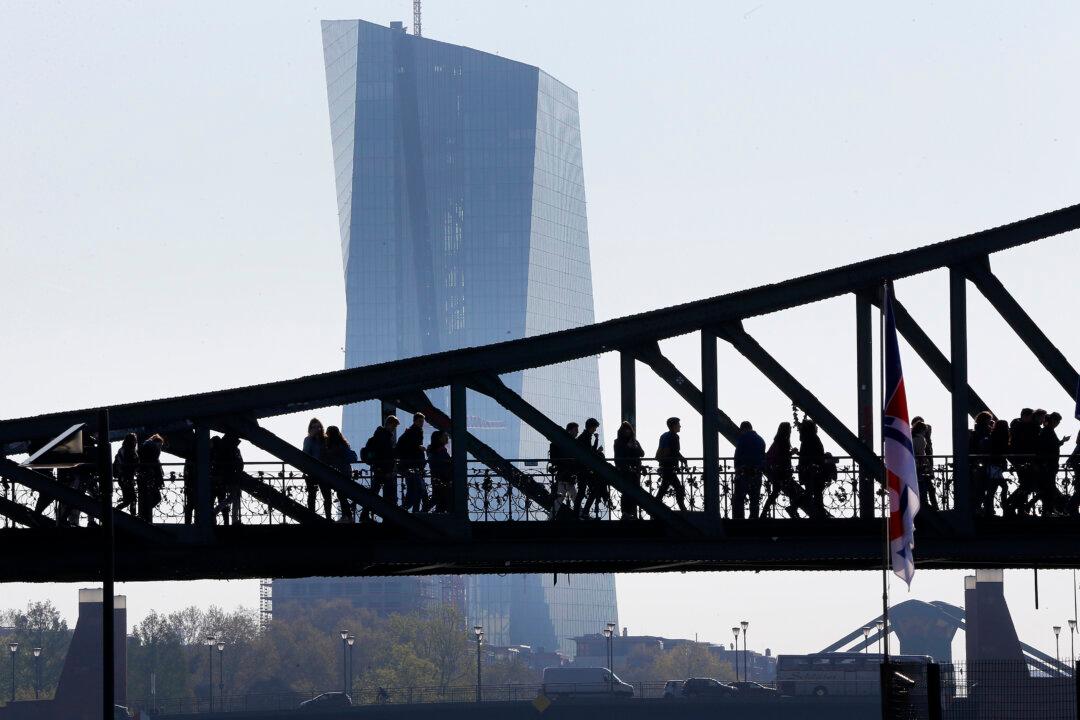BRUSSELS—The European Union has trimmed its economic growth forecasts for the 19 countries that share the euro, saying the recovery could be held back by a likely rise in the price of oil and the common currency.
Although the eurozone economy saw surprisingly high growth in the first quarter, when it regained the size it was before the 2008 financial crisis, EU Commissioner Pierre Moscovici said the recovery “remains uneven.” That is true not only between member states like Germany and Greece, but also within countries, between the wealthy and poor, he said.
In its spring update to its forecasts, the EU predicted that the eurozone economy would grow by 1.6 percent in 2016, down 0.1 points from its expectations made three months ago. Growth is forecast at 1.8 percent in 2017, also a 0.1 point trim to previous predictions.
Inflation is seen languishing at an average annual rate of just 0.2 percent this year before picking up to 1.4 percent next year. That’s down from the EU’s last forecasts for 0.5 percent and 1.5 percent, respectively. Low inflation is a sign of weak economic activity, and the European Central Bank is tasked with keeping it just under a 2 percent rate.





